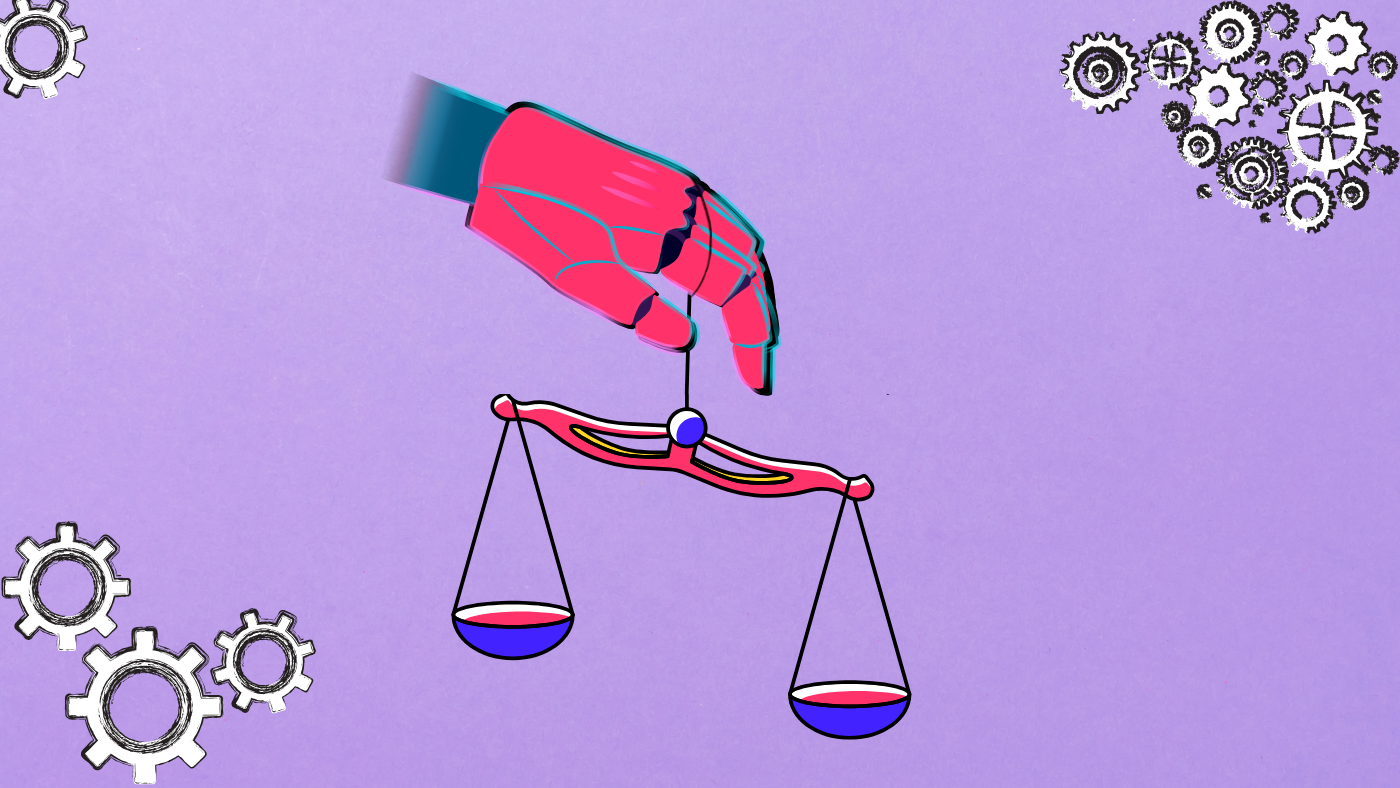What is AI Governance? A Guide to Responsible and Ethical AI
5 minutes
February 11, 2025

The Growing Global Focus on AI Governance
AI governance is taking center stage at the Paris AI Summit, where India and France are deepening collaboration on responsible AI policies. With rapid advancements in AI, a robust governance framework is essential to ensure that AI systems are developed, deployed, and utilized responsibly and ethically. As AI technologies take center stage in decision-making, knowing and implementing governance frameworks geared towards risk considerations of bias, privacy violation, transparency, and ethical dilemmas is critical. Unchecked AI systems worsen social inequality, breach individual privacy, and cause harm inadvertently.
In this blog, we explore what AI governance entails, why it matters, and how organizations can build effective frameworks to align AI with ethical and regulatory standards.
What is AI Governance and why it matters
AI governance incorporates the policies, procedures, and ethical principles that guide AI systems' development, deployment, and maintenance. The goal is to ensure that the AI technologies used are aligned with societal values, prioritizing safety, fairness, accountability, and transparency.
Some key reasons that underscore the importance of AI governance:
- Ethical Responsibility: AI systems can amplify existing biases in data, thus leading to discriminatory outcomes. For example, biased algorithms can impact hiring decisions, law enforcement practices, and access to healthcare. Governance frameworks identify these risks early on and develop protocols to mitigate them.
- Regulatory Compliance: Governments worldwide are focusing heavily on regulating AI. Recent updates, like the EU AI Act or the GDPR, make it all the more necessary for organizations to adhere to strict data privacy and protection standards. AI governance helps organizations navigate the intricacies of law and avoid penalties for non-compliance.
- Public Trust: There is an overarching need for public trust for AI technologies to gain popularity. Through clear AI governance, public trust is established regarding whether the AI system is fair, accountable, and adheres to social values. Explaining AI to the public helps them understand these systems.
Key Challenges in AI Governance
While AI governance is the way to go, some challenges make its successful implementation challenging.
- Complexity of AI Systems: The intricacy of the modern AI algorithm is such that its decision-making processes cannot be understood in entirety. This "black box" nature of AI may prevent an organization from immediately noticing issues like algorithmic bias or ethical concerns. For example, AI-powered facial recognition systems have been discovered to have racial and gender biases, which could lead to wrongful arrests or misidentifications.
- Rapid Technological Evolution: The speed at which AI technologies evolve often outstrips the development of its associated regulatory frameworks. Newly introduced applications, including generative AI and deep learning, introduce new challenges that existing regulations may not anticipate. Policymakers may end up being out of their depth in trying to keep up with the rapid pace of innovation, thereby creating oversight gaps.
- Diverging Stakeholder Interests: The AI ecosystem comprises several stakeholders, including developers, users, regulators, and the general public, each with their own interests and priorities. Balancing these diverging interests to establish a holistic governance framework is challenging. Developers are more concerned with innovation, while regulators focus on safety and compliance. Users are concerned about privacy and transparency, and the public demands ethical accountability.
- Ethical and Societal Impact: AI systems have significant implications for society. For example, AI algorithms in criminal justice can reinforce systemic biases and, thus, cause unequal sentencing outcomes. In healthcare, AI systems need to provide fair access so as not to widen disparities. Thus, developing governance frameworks that consider these broader societal implications is critical.
Building an Effective AI Governance Framework
Organizations need to develop a strong AI governance framework that includes ethical, legal, and technical aspects. Some of these are:
- Clear Policies and Guidelines: Organisations need to set effective policies that comply with ethical standards and legal regulations. Those policies should define, among other things, how AI systems are developed, deployed, and tracked throughout their lifecycle. Such clear and transparent policies ensure that all relevant parties agree on using AI ethically.
- Inclusiveness Stakeholder: Artificial intelligence governance should include multiple types of stakeholders. AI developers or engineers, ethicists, sociologists, legal persons, and members from minority groups are supposed to come aboard to establish this kind of diversified framework and, therefore, account for the multiple needs, considerations, and perspectives of a significant majority.
- Monitoring and Accountability: Continuous monitoring of the AI systems detects biases, performance issues, or other unintended effects. Monitoring tools that give greater transparency into how AI systems have made decisions assist organizations in solving problems before their issues escalate further. Regularly auditing AI systems also maintains accountability and adherence to governance standards.
- Transparency and Explainability: The general public will learn to trust AI models only when they are explainable. Transparent AI systems that can make their reasoning available for their choices are more easily accepted by end-users and authorities. Explainability is essential for sectors such as healthcare, which is highly risky if the consequence of an AI-driven decision occurs.
Recent Developments in AI Governance
1. Global Initiatives and Agreements on AI Governance
- Paris AI Summit 2025: The Paris AI Summit brings together world leaders to discuss AI governance, economic impacts, and ethical standards. Happening on February 2025, the summit is attended by prominent figures, including world leaders, top tech executives, and lawmakers.
- AI Seoul Summit 2024: The AI Seoul Summit took place in May 2024. It attracted leaders from 16 global AI tech companies, such as Tesla, Samsung Electronics, and OpenAI. The Seoul Declaration was issued. The declaration aims to ensure the safe, innovative, and inclusive development of AI technologies by ensuring international cooperation and human-centric AI principles.
- Bletchley Declaration: In November 2023, the AI Safety Summit at Bletchley Park in the UK resulted in the Bletchley Declaration, in which 28 countries, including the United States, China, and the European Union, agreed to collaborate on managing AI challenges and risks. This declaration underlines the importance of international co-operation in AI governance.
2. National Policies and Regulations
- United States: President Biden issued Executive Order 14110 in October 2023. This order focuses on the safe, secure, and trustworthy development of AI. The Executive Order calls on independent regulatory agencies to fully utilize their authority to protect consumers from risks associated with AI. It emphasizes the need for transparency and explainability, requiring AI models to be transparent and mandating that regulated entities can explain their AI usage.
- Australia: In September 2024, the Australian Government issued a Policy for the responsible use of AI in government, , marking a significant step toward positioning itself as a global leader in the safe and ethical use of AI. The policy underscores the need for AI to be used in an ethical, responsible, transparent, and explainable manner.
- China: China has aggressively incorporated AI into its governance structure. The country has policies that encourage AI development but keep a tight lid on information. For example, the AI chatbot DeepSeek self-censors in real time, showing the balance between technological advancement and governmental oversight.
3. Corporate Initiatives
- IBM and e& Collaboration: IBM has partnered with e& to introduce the first-ever end-to-end AI governance platform. This move advances AI governance frameworks and furthers compliance, oversight, and ethics in AI ecosystems.
- AryaXAI is another key player in AI governance, offering an advanced platform for AI alignment, risk management, and explainability. Designed for hmission-critical AI applications, it helps enterprises monitor model behavior, ensure transparency, detect and mitigate AI risks in real time, and align models with regulatory and ethical standards.
With AI governance taking center stage, tools like AryaXAI help organizations manage AI compliance and trust, ensuring responsible deployment of AI at scale.
Conclusion - AI Governance: The New Imperative
As AI continues to reshape industries and societies, effective governance will be crucial to ensure these technologies are developed and deployed responsibly. AI governance frameworks must address ethical considerations, regulatory compliance, and societal impact while fostering innovation. By learning from successful case studies and proactively addressing key challenges, organizations can create AI systems that benefit society while minimizing risks. Collaboration between the policymaker, businesses, and the public is fundamental in determining the governance structures that ensure transparency and accountability towards AI technologies.
SHARE THIS
Discover More Articles
Explore a curated collection of in-depth articles covering the latest advancements, insights, and trends in AI, MLOps, governance, and more. Stay informed with expert analyses, thought leadership, and actionable knowledge to drive innovation in your field.

Is Explainability critical for your AI solutions?
Schedule a demo with our team to understand how AryaXAI can make your mission-critical 'AI' acceptable and aligned with all your stakeholders.



















.png)

.png)
%20AryaXAI%20blog.png)


